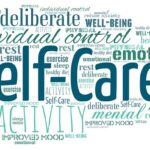10 Study Benefits of Being Lazy

Study benefits to being lazy? What in the heck are these crazy people trying to sell us? Haven’t they said our whole lives that the early bird gets the worm, hard work breeds success, and all that?
Yes, “they” have, whoever “they” are. We’re different, though. We actually see the value to your grades and career when it comes to doing less. It’s all about doing less and making sure that what you are doing is more measured and thoughtful.
In the following article, we’ll be covering the 10 benefits of being lazy as it relates to your studies. Let’s begin!
1. More Time In Thought
The first of the study benefits to being lazy is that you get to spend more time in thought. This might not be helpful out on the football field or basketball court. After all, there is such thing as overthinking things.
In the classroom, though, your thoughtful brain is a huge benefit. Yet, many students tackle their homework and studying like they would a sport. “I’ve gotta do something or I’m wasting time.” True, except that just doing stuff to do it if you don’t understand it is a big mistake.
Homework, tests, and projects are based on complex concepts. Those concepts are things you need to understand to be able to keep up with the complexity to come. Slowing down to ponder is never a bad thing if you’re having trouble with your homework.
2. Cutting Out Wastefulness
Another key benefit to being lazy is that it helps you determine what is really important. For example, let’s say that something comes up you really need to get done. You don’t want to jump right on it, though, because you know it’s going to be a massive headache.
So, the task gets delayed and delayed and delayed. Three weeks go by. It’s due in one. Your teacher has heard complaints from other students who are struggling to understand the assignment. She then shares a resource with you that changes everything.
This resource is going to cut out so much of the work and make it a lot easier to approach. Now, aren’t you glad you didn’t spend every waking minute the last three weeks fretting over it?
That sort of thing happens all the time in school and life. It’s called productive procrastination. What makes it possible? Mindfulness of the complexity of the task, awareness of the due date, and leaning on your resources to see if maybe there’s an easier way to go about doing something.
In other words, you put things off for as long as you can while considering alternatives or calculating whether the task even needs to get done in the first place.
3. Better Planning
Let’s be clear that “laziness” as it looks does not always translate to the laziness of the brain. You can be “working” in front of the television watching your favorite show.
See, the brain at its most relaxed is capable of solving problems that previously presented roadblocks to your progress. The downtime helps you to create a better plan for approaching issues that have you stumped.
If you find yourself getting nowhere with a problem, then go to your happy place. Get lost in something you enjoy, and the answers will often come to you. Or, they’ll at least help you decipher one aspect of the problem that allows you to move forward.
4. Restoring Body and Mind
Getting wrapped up in your studies? Feel your butt start to hurt, bones ache, words run together? When this occurs, then you’ve been spending too long in a chair and too much time in front of a backlit screen or scanning the lines of a textbook.
It’s time to get up and move around. As you slam that wall, switch positions. Some would say there is nothing lazy about going for a walk or an exercise of some type. But if you actually find it relaxing, then why not include it?
The act of stepping away from these drains on your mental energy give you the opportunity to work in exercise, meditation, and all sorts of other types of restorative activities.
5. Catching Up On Sleep
The body needs sleep to recover from workouts and mental strain. It’s where most of your growth and regeneration occurs. If you start dipping into that, it can have negative consequences on your life for quite some time.
Try to make time for at least 8 hours of sleep every night. If you have to pull any all-nighters, then you need to go back to your schedule and figure out those potential time-sucks. Once you have, take action.
By making time for lazing in bed, you can give your body and mind the rest that it deserves. This has many benefits to both your mental and physical health, and it’s essential if you want to get through college and graduate school.
6. Socialization
Socialization is an important part of the college and high school experiences. It’s through your friends and acquaintances that you learn who you are, what you believe, and where you’d like to take this thing called Life from here.
Lazy time gives you a chance to learn more about yourself. It gives you that chance through the people with whom you choose to spend most of your time.
Friends will come and go throughout your life, and your tastes will change in what you look for. But you’ll never get the chance to explore any of that until you take time away from the daily to-do list to fit in some social time.
7. Learning More About Your City
Knowing where your city has come from is a good way to position yourself within its ranks as you come up through college and into your professional life. Most people tend to settle down and work in places that aren’t far from where they graduate.
The more present you are in that city, and the more knowledge you have of it, the better. So take some time away from your studies and obligations to explore the history, trends, and culture that have shaped your area.
You’ll find some fascinating tidbits by visiting history museums and famous (for the area) landmarks. It will also get you acquainted with family surnames that have been around for quite some time, which can guide you in future networking efforts.
8. Getting Involved With Groups or Clubs
Some people feel guilty when they head off to college and start letting their clubs, groups, and extracurricular activities cut into class and study time. Does that describe you? Well, it shouldn’t.
See, all those things are part of your development. The only way to know which activities are useful is to actually experience them. You’ll never do that if you just stick your nose in the books the whole time.
These types of things not only develop your passions and interests but also your socialization and networking skills, which play directly into the highly useful “soft skills” that the corporate world is looking for. Every brick in the college experience matters. So make time to get away from what “you’re supposed to be doing.”
9. Rethinking Your Approach to Studying
Another perk of putting things off/being lazy/procrastinating, is that you can take that time to reevaluate your study habits. If something just isn’t getting through, what could you be doing differently?
You have to look up from the grindstone now and then to see if there might be a better way to do something. That goes for your studies as much as anything else.
Not all subjects should be approached in the same manner. Sometimes group learning is better than doing so as an individual. Sometimes YouTube videos are better solutions than blog posts. You get the point.
Study the “theory” behind how you approach learning new materials. Is it working for you or not? Use that lazy time to your advantage.
10. Embracing Passion Projects
Finally, “lazy” time gives you a chance to pursue passion projects. Or, it can help you see how your passions might translate into a career. A couple of examples are below.
Sid wants to write a novel, but he always feels guilty every time he boots up the word processor. He should be working on his homework or studying for a test. Writing a novel is being lazy to him because it’s just too darn fun. Sid just needs to realize there is no shame in pursuing something you’re passionate about, and he needs to get that book done. It will make him a better writer and build his perseverance.
Nancy loves watching Netflix. She really digs some of the longform fantasy series that she finds there. Her parents catch her binge-watching a show and tell her that she really should stop being lazy and get her homework done. Nancy thinks they have a point, so instead of watching her show, she starts to get interested in how they make it. Pretty soon, a passion that can turn into a career is born.
These Study Benefits Come About When You Use Downtime to Your Advantage
We hope by now you can see the study benefits of sometimes stepping away from what you “need” to do and instead working on what you “want” to do. That’s true even if there are no obvious educational benefits at first to what you’re wanting.
It’s all about helping you become the person you were designed and molded to be. Now it’s your turn. What are some ways that being lazy has helped you that we didn’t cover? Which of these resonate the most with you?
[Featured Image by Wikimedia Commons]








